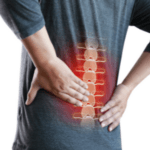An NHS Trust has been fined after a mother who had just given birth died when she was given the wrong drug.
Mayra Cabrera, 30, died at the Marlborough Road hospital in Swindon on 11 May 2004. Mrs Cabrera, who worked as a nurse at the same hospital, had just given birth when she was given an injection of a local anaesthetic called bupivacaine. She had been prescribed a saline solution to help raise her blood pressure, but a nurse administered the bupivacaine by mistake. She died one hour later following medical complications, as a result of the mix-up.
HSE investigators discovered that the two drugs were stored in the same racking system, despite having almost identical packaging. They found that no proper management system was in place for the storage of the drugs, and warnings from earlier incidents had not been properly followed up.
HSE inspector Liam Osborne said: “This was an absolutely heartbreaking case to investigate. Mayra Cabrera needlessly died as a result of comprehensive management failings at board, pharmacy and ward level.
“Had the hospital done something as simple as keeping these completely different but almost identical-looking drugs in separate cupboards, then Mrs Cabrera would not have died.”
Great Western Hospitals NHS Trust appeared at Bristol Crown Court on 17 May and pleaded guilty to breaching s3(1) of the HSWA 1974. It was fined £75,000 and was ordered to pay £25,000 in costs. No charges were made against the nurse who administered the drug.
Added inspector Osborne: “It is really important that risks are properly assessed and safe systems put in place that minimise the chance of human error.”
Following the hearing, the Trust’s chief executive Lyn Hill-Tout said: “First of all, I want to apologise again to Mr Cabrera, his son, family and friends for the mistakes that happened, which led to Mayra Cabrera’s death. As a result of what happened, a husband does not have a wife and a son does not have a mother. We deeply regret this – Mayra’s death should not have happened.
She continued: “Since her death the Trust has fully cooperated with six external inquiries and a jury inquest, which lasted four and half weeks. We have implemented all of the recommendations from the inquiries and the inquest. The improvements made to the maternity service since Mayra’s death led to the Care Quality Commission awarding the hospital the best standard for maternity care.
“Regrettably, we cannot turn the clock back; however, we have learnt valuable lessons and will never be complacent about patient safety by ensuring it remains our top priority at all times.”
Approaches to managing the risks associated Musculoskeletal disorders
In this episode of the Safety & Health Podcast, we hear from Matt Birtles, Principal Ergonomics Consultant at HSE’s Science and Research Centre, about the different approaches to managing the risks associated with Musculoskeletal disorders.
Matt, an ergonomics and human factors expert, shares his thoughts on why MSDs are important, the various prevalent rates across the UK, what you can do within your own organisation and the Risk Management process surrounding MSD’s.


Its amazing how lessons learned in the past can be forgotten. A friend of mine was killed in exactly the same way in 1970 at one of the big London teaching Hospitals – she was given an injection of potassiam chloride instead of sodium chloride. The enquiry found that the two drugs were in identical vials and stored in the same drawer and very strong recommendations were made that such drugs should be clearly marked and colour coded and should never be stored in the same place. It seems that lesson had been forgotton – and was repeated.